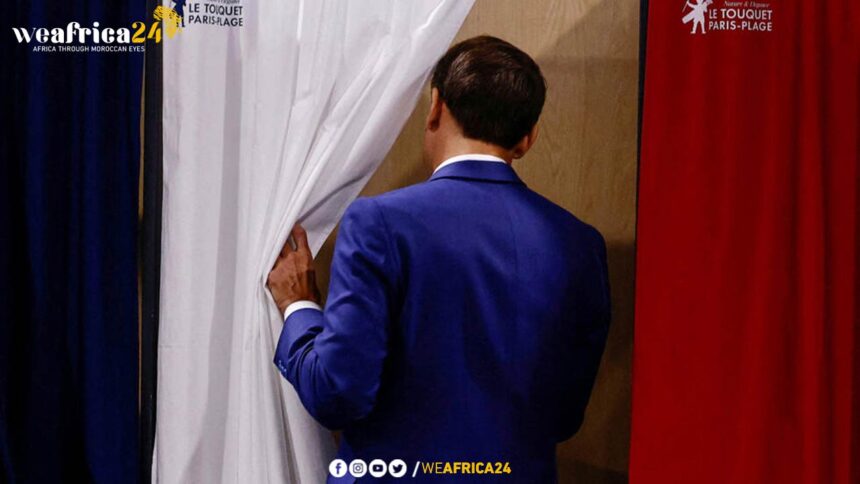France remains on edge as the final day of campaigning concludes before the second round of legislative elections on Sunday. Incidents, altercations, insults towards citizens, and physical violence against candidates from all parties have marked the period between rounds. These are clear indicators of heightened tensions fueled by the political stakes of this election, which will determine France’s future.
The first is simply to achieve an absolute majority for the National Rally (RN). If the number of 289 deputies is within reach or is reached in that scenario, Emmanuel Macron would be forced to nominate Prime Minister Jordan Bardella. Bardella, who spent the week rallying the French to give him this majority, is already thinking about forming a government, but he said, “My government is ready. It includes personalities from the National Rally, as well as figures from the Republicans, the right, and civil society.”.
One alternative is that neither of the two blocs, LR and RN, achieves a majority after June 30. This was the result for which Emmanuel Macron and Gabriel Attal had set the stage, when on the evening of the first round, they evoked an “alternative majority” to the actual majority that only the RN could achieve.
This hypothesis has shaped the second round campaign for the left, as well as the presidential majority. According to the Prime Minister, it will require a new way of functioning in this “new reality”: “Everyone will be forced to reinvent their way of collaborating with others. Those who are not in this state of mind, after the legislative elections, will be plunging the country into a kind of paralysis.”
Without this coalitional existence, the formation of a government and the normal functioning of the Assembly is simply problematized, whether or not it has been dissolved.
But with whom will this coalition be formed?
he coalition will exclude the extremes, focusing instead on the “republican forces,” which include the central bloc, the non-Ciottist Republicans, the socialists, and the ecologists. Consequently, the LFI is sidelined, as stated by Emmanuel Macron and Gabriel Attal, even though the strategy to oppose the RN in the second round involved withdrawals concerning the Unsubmissive.
This creates significant challenges in governing without the LFI, the core group of the New Popular Front. Meanwhile, the idea of a coalition is also taking root on the other side. Marine Tondelier, leader of the ecologists, communist leader Fabien Roussel, and Raphaël Glucksmann, who advocates for “project majorities,” are becoming more receptive to this approach.
A coalition is at least theoretically possible, but in applicable terms, it is definitely going to be something very tough to construct. According to an insider in Macronie,” it will take time,” and they are reflecting on it with others.
Possibly, meanwhile, Emmanuel Macron will ask Gabriel Attal to stay at Matignon so that he can manage current affairs, though that seems to result in logic where he resigns once the result is known.
On the contrary, he might go in for a government of technocrats. In any of these eventualities, the very important and tough task is going to fall on the choosing of the future Prime Minister on which the continuity of the presidency of Emmanuel Macron depends. The only sure thing is that there is nothing sure.







